Disability and Empowerment in the Creative Sector
By Claire Harris “The industry’s working culture and practices need to change substantially before disability inclusion is achieved.[i]” (Creative Diversity Network, p. 7 2022) Disability

By Claire Harris “The industry’s working culture and practices need to change substantially before disability inclusion is achieved.[i]” (Creative Diversity Network, p. 7 2022) Disability

By Anya Clayton Disability representation in publishing is on the rise. The Publishers Association stated in their 2020 diversity and inclusion report that the proportion

By Tom Perrett This year’s A-Level results saw dramatic changes to the ways in which results were determined in light of the absence of exams,

By Tom Perrett Earlier this year, author L.L. McKinney started the Twitter hashtag #PublishingPaidMe, calling for authors to share the advances they had received for

The impacts of COVID-19 on all sectors have been immense, but perhaps one of those hardest hit is the independent publishing industry. Already heavily reliant
Aliq is notm hendr erit a augue insu image pellen tes.
Our focus is on publishing books and supporting research covering climate change, the environment and social sciences. Alongside this, we support the delivery of projects that tackle the climate emergency.
